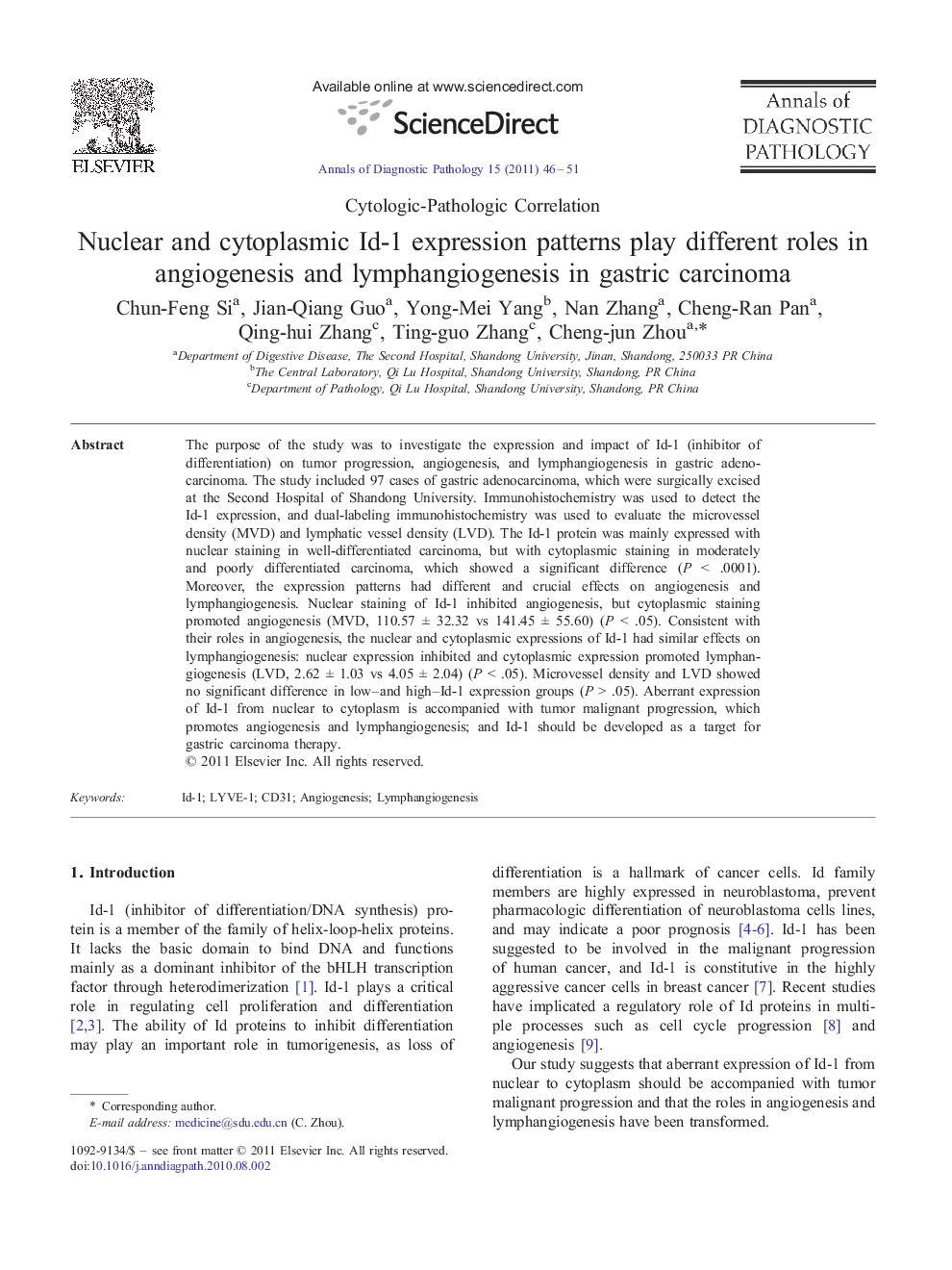| Article ID | Journal | Published Year | Pages | File Type |
|---|---|---|---|---|
| 4130083 | Annals of Diagnostic Pathology | 2011 | 6 Pages |
The purpose of the study was to investigate the expression and impact of Id-1 (inhibitor of differentiation) on tumor progression, angiogenesis, and lymphangiogenesis in gastric adenocarcinoma. The study included 97 cases of gastric adenocarcinoma, which were surgically excised at the Second Hospital of Shandong University. Immunohistochemistry was used to detect the Id-1 expression, and dual-labeling immunohistochemistry was used to evaluate the microvessel density (MVD) and lymphatic vessel density (LVD). The Id-1 protein was mainly expressed with nuclear staining in well-differentiated carcinoma, but with cytoplasmic staining in moderately and poorly differentiated carcinoma, which showed a significant difference (P < .0001). Moreover, the expression patterns had different and crucial effects on angiogenesis and lymphangiogenesis. Nuclear staining of Id-1 inhibited angiogenesis, but cytoplasmic staining promoted angiogenesis (MVD, 110.57 ± 32.32 vs 141.45 ± 55.60) (P < .05). Consistent with their roles in angiogenesis, the nuclear and cytoplasmic expressions of Id-1 had similar effects on lymphangiogenesis: nuclear expression inhibited and cytoplasmic expression promoted lymphangiogenesis (LVD, 2.62 ± 1.03 vs 4.05 ± 2.04) (P < .05). Microvessel density and LVD showed no significant difference in low–and high–Id-1 expression groups (P > .05). Aberrant expression of Id-1 from nuclear to cytoplasm is accompanied with tumor malignant progression, which promotes angiogenesis and lymphangiogenesis; and Id-1 should be developed as a target for gastric carcinoma therapy.
